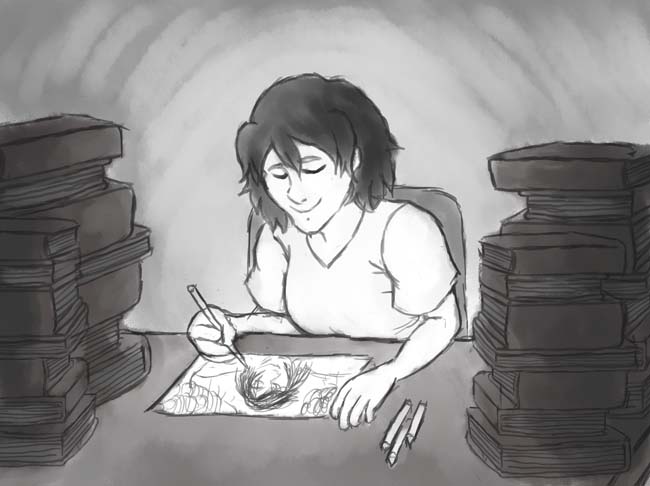Why declare a creative writing minor? The College of William and Mary’s decision to develop a creative writing minor will likely prompt this question from skeptical parents and politicians, who may not see its value in an economically uncertain environment. While unorthodox and lacking a direct connection to seemingly practical career paths, the creative writing minor is a welcome addition to the College — and to a world in desperate need of good writers.
To write a compelling story, one needs a deep understanding of human nature. That requires observation, patience, and the ability to stop and think. It doesn’t require a Ph.D. in psychology, but rather an understanding of the human mind. What moves us? What makes us laugh? What makes us wonder? What makes us relate? Unless writers are recounting a true story or basing their stories off real events, they have to craft a narrative and populate it with characters. That requires empathy, understanding how your characters’ personalities and choices will make readers feel. Creative writers also need to be clear; no one wants to read vague, ambiguous language.
A talent for creative writing would benefit students beyond the literary world. No matter what you do with your life, you will need to be able to communicate effectively. Learning to write creatively develops that skill. Bringing people into a fictional world, the writer must be in complete control of her message, as she will need to be when arguing a case, conducting surgery, writing a lab report, or working in a number of other workplace activities.
Storytelling is central to human communication. Stories can provide important lessons about ideas as abstract as love and morality to more concrete concerns like business and medicine. Storytelling is how we interact with one another on a daily basis. When people ask, “How was your day?” they’re usually expecting some semblance of story. The life of any party is usually the one who tells the best stories. Storytelling is natural and human.
Storytelling is also a form of innovation. Because all stories have already been told in one way or another, writers must think of new ways to engage a more sophisticated audience. Creating something original out of old parts will be of use to more than just the publishing industry.
Students who take creative writing classes will have to let others critique their work. Because the best creative writing requires reaching into oneself, sharing can be an act of courage. How many of us are willing to expose ourselves psychologically and emotionally to strangers? The result may be a better understanding of ourselves and others, but that kind of vulnerability is terrifying: You’re letting others see you as you see yourself.
Creative writing has value not only for the skills it fosters, but also for its own sake. We use it to make sense of our world and ourselves. It can bring out the full range of human experiences: mystery, passion, tragedy, beauty and love. And it is welcome at the College.
Meredith Ramey recused herself from this staff editorial to remain unbiased in her reporting.




































